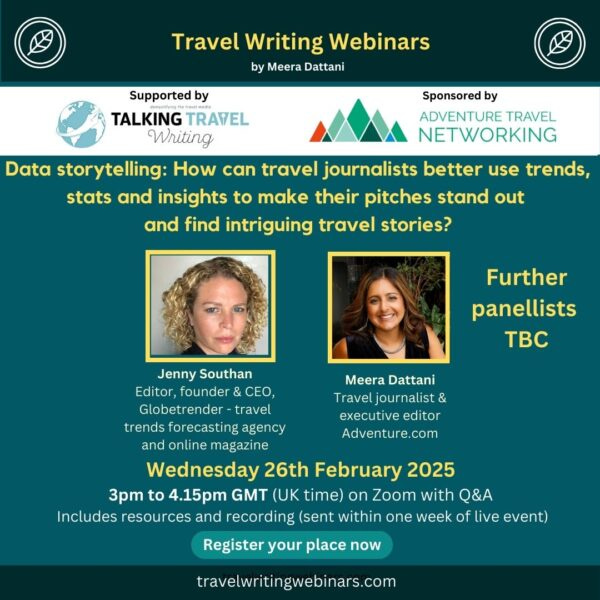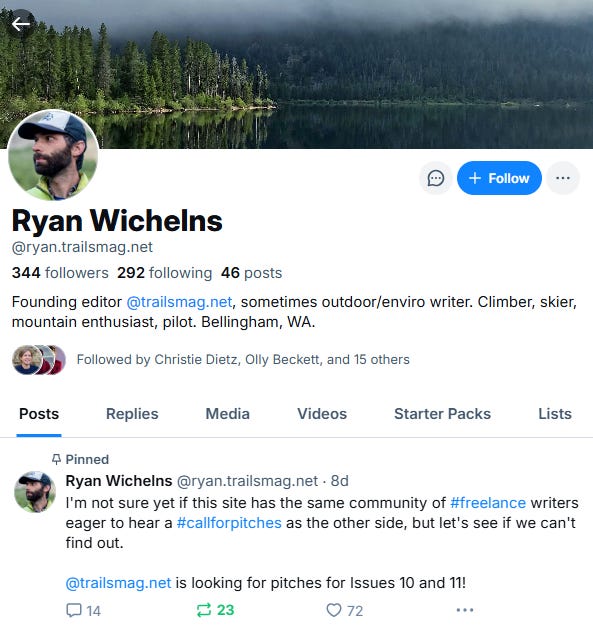If you’ve been a Talking Travel Writing subscriber for a few years, you might remember that salacious email we sent about the PR horror stories from the road. PRs have seen it all — flagrant sexism, nudity, emotional outbursts, you name it. But they really shouldn’t have to put up with this stuff — and nor should the rest of the journalists on the trip. But beyond all the outrageous stuff we wrote about in that piece back in 2023, there’s a bunch of other irritating things we journalists do on press trips that in many cases will get us “blacklisted” by the PR.
Our behaviour is not only a reflection on the outlet we’re working for, but it’s also a reflection on ourselves and our positions as trustworthy travel writers. And that means if we’re going to be 🍆 about it, we’re probably not going to get invited again. Whether you’re on a group trip or even an individual press trip, take note of these 10 things you should absolutely avoid doing on your next assignment.

1. Don’t get overly drunk
Drunkenness was the single most common response in our survey of PRs in 2023 when we asked about the most awkward things that have happened on press trips. Now, alcohol is almost unavoidable on some press trips — especially group trips where there’s free-flowing wine on the table at dinner (and sometimes lunch). But just because it’s there doesn’t mean we have to drink it, and we definitely shouldn’t be getting so pissed we fall in a pond/get too flirty with the client/have to be carried out of a castle (yes, all these things have happened).
Enjoy the booze to a point, appreciate the company, and wake up without a headache so you can actually do your job. This also extends to cleaning out your minibar — I once heard of a journalist who spent over a thousand pounds by drinking the minibar dry daily. Don’t be that person.
2. Don’t push your luck
Some press trips happen with almost no notice — I’ve been called up and sent off on last-minute trips a few times in my career, with only a couple of days to get my deadlines done and prepare to fly. But more often than not, we’re able to do a little planning in advance for our trips and that means, especially on individual ones, we can anticipate the things we’ll definitely need to see/do while we’re travelling based on the commission we’ve got.
Don’t be that person who turns up on day one and demands to do a bunch of stuff that wasn’t ever on the itinerary. Be explicit about what your story is and tell the PR in advance what you need. If you’re going on a group trip, ask if it’s possible to extend your time on the ground afterwards so you can cover some of the things that weren’t in the itinerary. Eschewing the group activities for your own agenda is never a cool move.
3. Don’t be late
The only thing I hate more than other people being late is when I am late. I hate being late. Which is why I don’t understand how some are so okay with rocking up 20 minutes late to the meeting point at the beginning of a press trip day. It’s one thing keeping your interviewee or tour guide waiting — usually, plans can be relatively flexible if there’s only one or two of you involved. But when there’s a group trip with several journalists, a PR escort, a tour guide, bus driver and hosts waiting for you on the other side of your impending journey, being late is a huge pain in the arse. If the PR says 8am, it’s 8am — not 8:25am. If they say you’ve got 15 minutes of free time, don’t take 30. You’re wasting their time and the time of your fellow journalists, and it’s a huge sign of disrespect.
Having said all that, once my entire press trip group had such a great introductory drink at the airport we forgot we had to get on a plane. By the time we got to the gate, they’d given some of our seats away and so a bunch of us had to be upgraded to business. So maybe be late sometimes?
4. Don’t steal
Group trips can sometimes feel competitive — we’re all there for the same thing: to get an interesting story. But you don’t need to be petty about it; have confidence in your own ability to craft something great. Don’t nick quotes from your fellow journalists. Don’t steal story ideas and angles. And definitely don’t rely on everyone else to have taken notes so you don’t have to.
5. Don’t pitch the only editor on the trip
It’s always a little bit exciting when you get to go on a trip with an editor of a publication you’ve been wanting to pitch. But don’t get too excited — play it cool. No editor is going to thank you for spending the whole trip saying “Oh I’m going to X to see Y, do you want a piece?”. They’ve most likely had to take annual leave to be on this trip (I certainly did in both my editorships), so give them a break. Let them relax a little. Build up a genuine connection, have good conversations and enjoy the journey, then pitch them in their inbox when you’re back like everybody else. You’ll still have the upper hand because you’ve spent some time with them and, hopefully, they’ll remember you.
The inimitable Sian Meades-Williams has launched a fantastic new initiative: The Freelance Writing Jobs New Directions Bursary. It has been “created for freelance writers looking to make a change and move towards a new writing format, niche, or project” and offers one writer a £400 voucher for a stay at Gladstone's Library in Hawarden, near Chester. It’s the UK’s only residential library and is a seriously soothing (and aesthetic) place to work on a new project. Find out more and how to apply here.
We’re commissioning!
In March we’re running a series somewhat inspired by the late, great Michael Moseley: the Just One Thing, Travel Writer’s Edition. We’ve got three newsletter slots to fill with stories about the “one thing” (eg. a skill/mindset/understanding) you think a travel writer really needs to succeed. Go beyond the obvious here — we all know resilience is a big one.
We’ll be commissioning three 500-word pieces on the “just one thing” you believe a travel writer needs — pitch us your ideas in no more than 150 words to hello@travelwriting.xyz please; put “JOT PITCH” in the subject line or it won’t get read. We pay £125 for 500 words.
Who to follow
Post of the week
Congratulations to Shafik Meghji for finishing his manuscript! This should be a corker…
Industry must-reads
Steph’s written this absolutely fascinating piece on whether travellers should be using AI to help plan their trips. This piece on Skift offers absolutely no hope for climate responsibility when it comes to the hospitality sector. And a new compendium of Norman Lewis’ travel writing has been released by Eland — it has had a rave review in the Guardian.
This was the first newsletter in a series about press trips. Don’t forget we’ve got a brilliant online course with advice on how to get on press trips and send great pitches, plus a whole host of downloadable materials. Check out Meera Dattani’s webinar series, too.






Great post!!!
A thousand times yes. I was on a press trip a few years ago where one editor/writer arrived late, was late to the few meals that she did join us at, and then missed most of the events. She was a nightmare for the organizers to deal with and rude to everyone else.